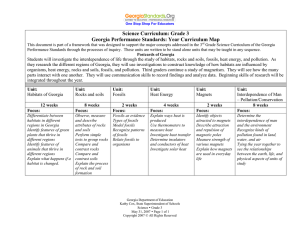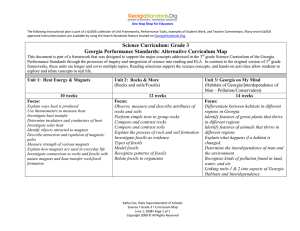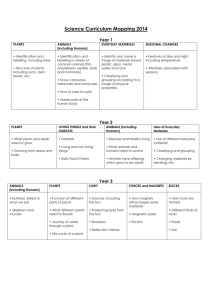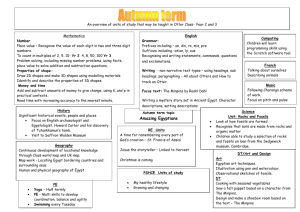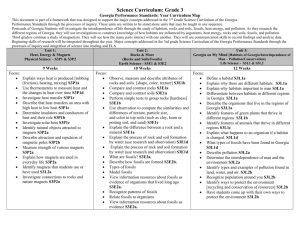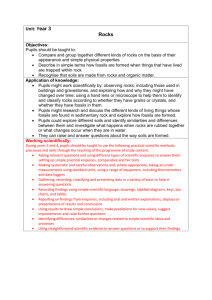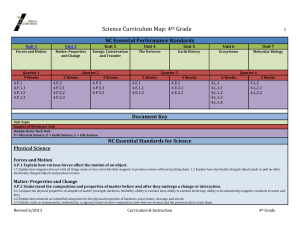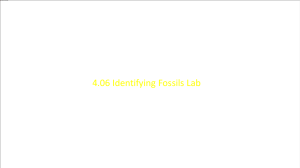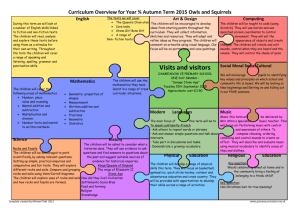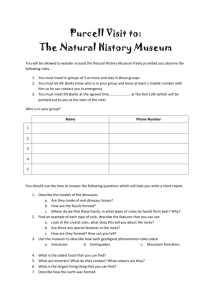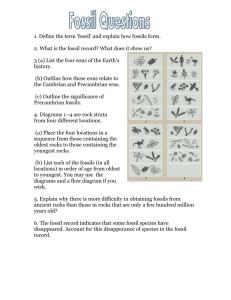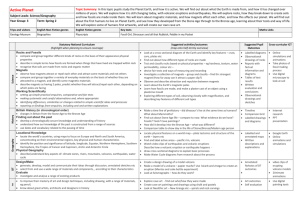Science - Worth County Schools
advertisement
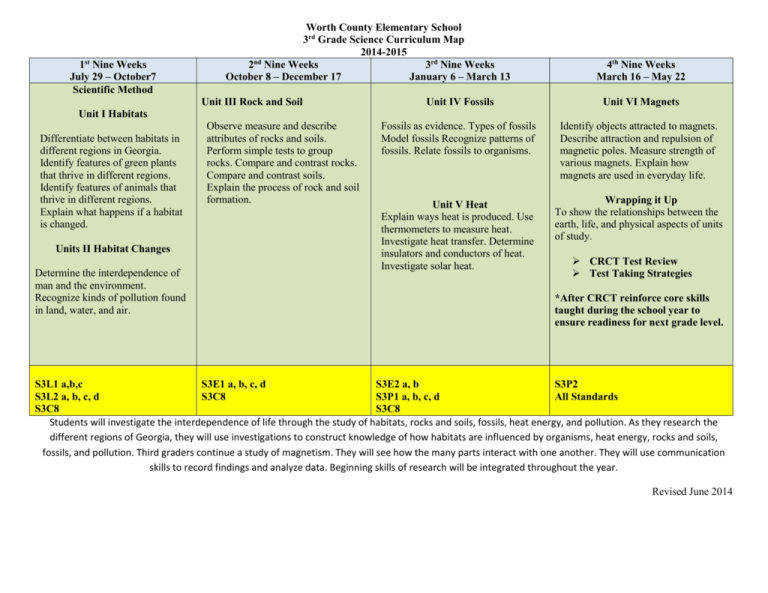
1st Nine Weeks July 29 – October7 Scientific Method Worth County Elementary School 3rd Grade Science Curriculum Map 2014-2015 2nd Nine Weeks 3rd Nine Weeks October 8 – December 17 January 6 – March 13 Unit III Rock and Soil 4th Nine Weeks March 16 – May 22 Unit IV Fossils Unit VI Magnets Fossils as evidence. Types of fossils Model fossils Recognize patterns of fossils. Relate fossils to organisms. Identify objects attracted to magnets. Describe attraction and repulsion of magnetic poles. Measure strength of various magnets. Explain how magnets are used in everyday life. Unit V Heat Explain ways heat is produced. Use thermometers to measure heat. Investigate heat transfer. Determine insulators and conductors of heat. Investigate solar heat. Wrapping it Up To show the relationships between the earth, life, and physical aspects of units of study. Unit I Habitats Differentiate between habitats in different regions in Georgia. Identify features of green plants that thrive in different regions. Identify features of animals that thrive in different regions. Explain what happens if a habitat is changed. Units II Habitat Changes Determine the interdependence of man and the environment. Recognize kinds of pollution found in land, water, and air. Observe measure and describe attributes of rocks and soils. Perform simple tests to group rocks. Compare and contrast rocks. Compare and contrast soils. Explain the process of rock and soil formation. CRCT Test Review Test Taking Strategies *After CRCT reinforce core skills taught during the school year to ensure readiness for next grade level. S3L1 a,b,c S3E1 a, b, c, d S3E2 a, b S3P2 S3L2 a, b, c, d S3C8 S3P1 a, b, c, d All Standards S3C8 S3C8 Students will investigate the interdependence of life through the study of habitats, rocks and soils, fossils, heat energy, and pollution. As they research the different regions of Georgia, they will use investigations to construct knowledge of how habitats are influenced by organisms, heat energy, rocks and soils, fossils, and pollution. Third graders continue a study of magnetism. They will see how the many parts interact with one another. They will use communication skills to record findings and analyze data. Beginning skills of research will be integrated throughout the year. Revised June 2014
